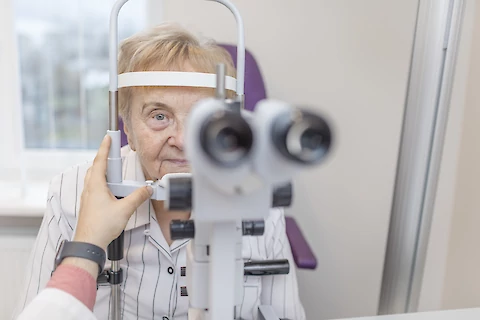
8 Daily Habits for Seniors Who Want to Reduce Their Risk of Glaucoma
Glaucoma is a serious eye condition that affects seniors in particular. In fact, of the 3 million Americans who have glaucoma, around three-quarters of them are seniors. Fortunately, seniors can start reducing their risk of developing glaucoma by maintaining good eye health and making healthy lifestyle choices.
If you are looking for ways to prevent the development of glaucoma and protect your eyesight, you can integrate these eight habits into your life today.
#1: Schedule Regular Eye Exams
Regular eye exams are the most crucial factor in reducing the risk of glaucoma. During an eye exam, a doctor can check for signs of glaucoma and diagnose it early. Seniors should ensure that they keep up with regular visits to their optometrist or ophthalmologist as often as is recommended.
#2: Get Enough Vitamins and Minerals in Your Diet
Eating a balanced diet with the right vitamins and minerals can help reduce the risk of glaucoma. Foods such as leafy green vegetables, citrus fruits, salmon, nuts, and eggs are all good sources of essential nutrients for eye health.
#3: Exercise Regularly
Regular exercises, such as walking or swimming, can help in reducing the risk of glaucoma. In fact, exercise helps to increase circulation throughout the body and keeps the eyes healthy.
#4: Avoid Smoking (or Secondhand Smoke)
Smoking or being exposed to secondhand smoke can also increase the risk of glaucoma. If you are a smoker, quit as soon as possible and avoid exposure to secondhand smoke.
#5: Avoid Certain Medications
Certain medications can increase the risk of glaucoma. Seniors should talk to their doctor about any medications they are taking and ask if these might put them at a higher risk for glaucoma. Their doctor may be able to recommend a different medicine that doesn't have the same risks.
#6: Practice Proper Eye Care
Seniors should take care of their eyes every day. Wearing sunglasses when they are outside and using eye drops as recommended by a doctor can help in reducing the risk of glaucoma.
#7: Avoid Certain Activities
Try to avoid activities like staring at a computer or phone screen for long periods of time or working on tasks like puzzles or crafts in dim lighting. These activities put a lot of strain on the eyes.
#8: Know About the Risk Factors
Seniors should know their risk factors for glaucoma. The most common risk factors include age, family history, race, and certain medical conditions. Talk to a doctor about any potential risks a senior may have and ask how to reduce them.
Recognizing the Symptoms of Glaucoma
It can be helpful to know the symptoms of glaucoma so seniors can recognize them and seek treatment as soon as possible. Symptoms may include blurred vision, eye pain, redness in the eyes, as well as difficulty seeing at night. If a senior experiences any of these symptoms, make sure to contact a doctor right away.
Are You a Senior Struggling with Glaucoma?
By following these daily habits, seniors can take proactive steps towards maintaining their eye health and avoiding permanent vision loss due to this serious condition.
If you or a senior loved one in Summerville, Orangeburg, Santee, Summerton, Ridgeville, or St. Matthews is concerned about your glaucoma risk, Senior Helpers Summerville can help.
Our experienced and compassionate caregivers can help seniors with their daily activities and needs so that they can live safely and independently in their own homes. Contact us today to learn more about our services.